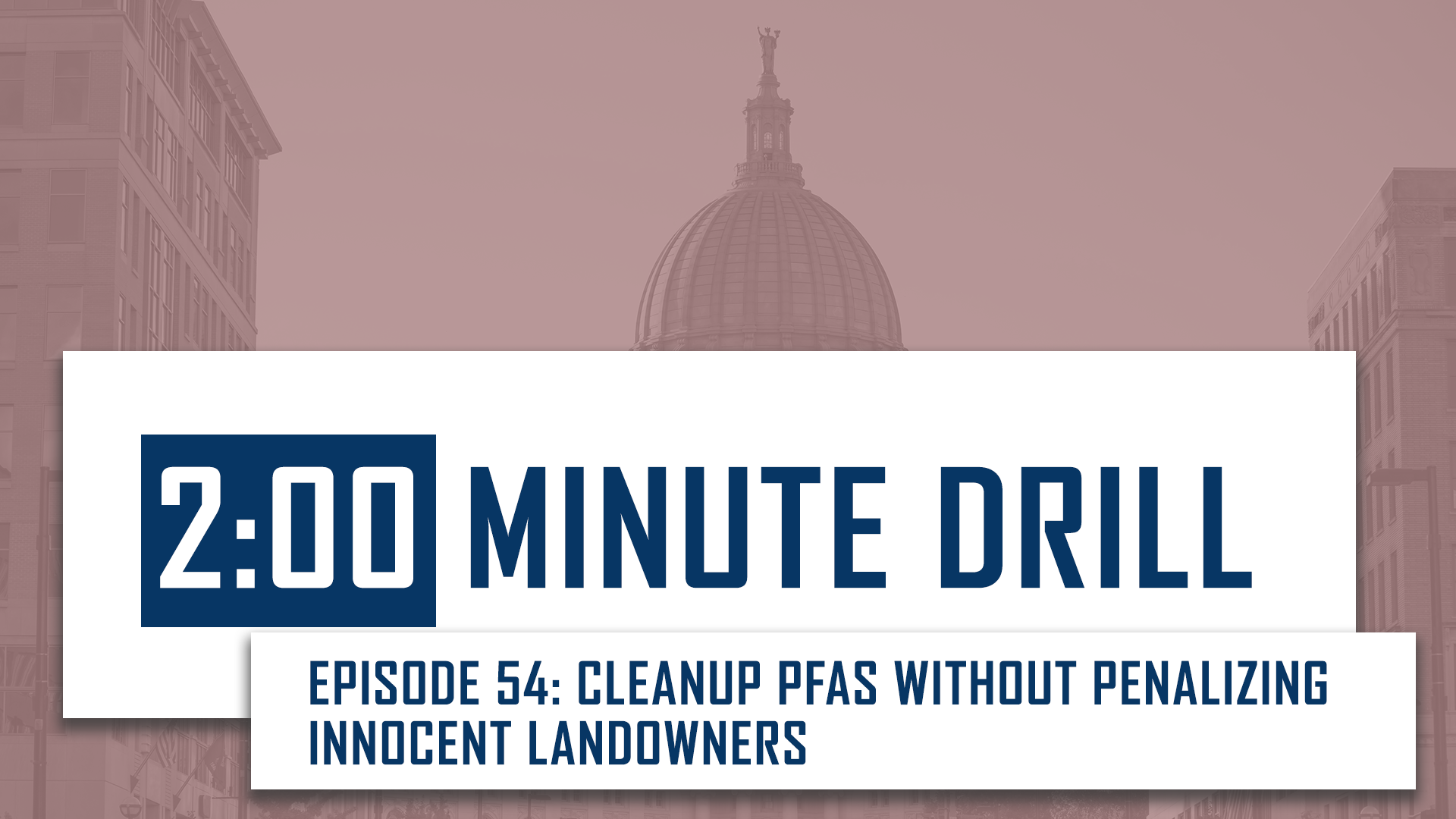Court Decision a Major Win for Government Accountability and Transparency
WAUKESHA – A Waukesha County Circuit Court judge ruled on Tuesday that the Wisconsin Department of Natural Resources (DNR) acted unlawfully when it failed to follow the required rulemaking process for establishing a new regulatory standard related to PFAS substances.
The ruling was in response to a lawsuit filed by Wisconsin Manufacturers & Commerce (WMC) – the combined state chamber and manufacturers’ association. WMC argued that DNR attempted to change the requirements for the state’s Remediation and Redevelopment program and the Voluntary Party Liability Exemption (VPLE) program without going through the rulemaking process. The court agreed that DNR must promulgate a rule – that includes public input and legislative oversight – to make these regulatory changes.
“When the government ignores the rulemaking process, employers are left in the dark as to what regulations they must follow. Businesses cannot afford to have that kind of uncertainty, and we do not think it is too much to ask for DNR to simply follow the law as written,” said WMC Executive Vice President of Government Relations Scott Manley. “Today’s decision assures the business community that regulators must operate within their own authority.”
Background:
Under Wisconsin law, property owners who are aware of a discharge of a hazardous substance on their property are required to report it to DNR and go through the Remediation and Redevelopment program. Parties can also voluntarily enter into the VPLE program to do a more intensive cleanup by investigating the site to see if hazardous substances are present, and then remediate those to DNR’s satisfaction. For parties who go that route, DNR issues the owner a “Certificate of Completion,” which grants them and future owners of the property liability protection.
This process allows properties to be redeveloped and improved for future use, while protecting the environment from known hazardous substances.
Unfortunately, DNR has never promulgated a list of substances that qualify as “hazardous substances” under state law. Instead, DNR was making determinations on an ad hoc basis, even going so far as to say that milk could qualify. DNR also decided without promulgating a rule that a new category of substances, which they refer to as “emerging contaminants,” qualify as hazardous substances. These include PFAS and related substances, which the state does not currently regulate.
WMC and its co-plaintiff, Leather Rich, Inc., filed a lawsuit against DNR last February on these issues seeking relief from certain unlawful policies and standards.
Following Tuesday’s decision, DNR must promulgate a rule informing the public of the substances it considers to be hazardous in order to regulate PFAS or so-called “emerging contaminants” under Wisconsin’s “Spills Law.” Additionally, the policy changes that DNR implemented to the VPLE program that required participants to do site investigations for PFAS or other emerging contaminants constituted a rule, and must be promulgated as such before they can lawfully enforce that policy.
Read WMC’s original filing here.
###





